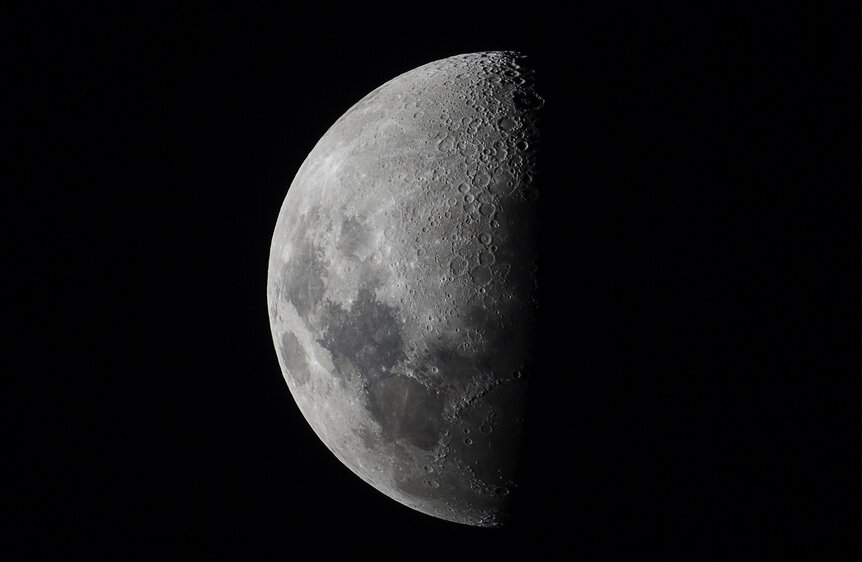Create a free profile to get unlimited access to exclusive videos, sweepstakes, and more!
NASA Proposes Moon Standard Time with Slightly Shorter Seconds
We're going to need a second watch for Moon time.
If you’re planning to leave Earth for an extended period (or forever, like the crew of SYFY’s The Ark) then you’re going to have to go without a bunch of things you take for granted on terra firma. You can say goodbye to feeling sunshine or the wind on your face, and you can kiss a familiar sense of gravity goodbye while you’re at it. You probably won’t have access to your favorite snacks; using the bathroom will be a chore; and there’s no such thing as fresh air when it’s all canned and recycled. Perhaps weirdest of all, you’ll have no innate environmental sense of the passage of time.
On Earth, we measure time in days and years, both of which are physically determined by the rotation of the planet and its orbit around the Sun. Even if every single clock vanished right now, you’d still know when one day had come and gone from the dawning and setting of the Sun. In space, that isn’t so. Suddenly, all of our systems for tracking the passage of time start to break down, and that’s before you even consider the time dilation effects of gravity and velocity.
The point is, the regular flow of time isn’t so regular once you leave Earth, which is why the White House has directed NASA to work alongside other government agencies for the development of universal lunar time.
For More on the Moon:
Odysseus Lunar Lander Returns U.S. to the Moon for the First Time in More Than 50 Years
The Moon Is Shrinking, Triggering Fault Lines and Moonquakes
NASA Laser Hit an Oreo-Sized Mirror on the Moon from Orbit
The Moon Is Getting Its Own Clocks Based on Its Own Flow of Time
On April 2, the White House Office of Science and Technology Policy issued a memorandum directed to the White House Cislunar Technology Strategy Interagency Working Group. That memorandum sets the task of establishing time standards at and around the Moon and other celestial bodies.
This isn’t the first time someone has called for a defined time standard on the Moon. In 2023, the European Space Agency (ESA) made a similar suggestion, noting the increase in lunar activity expected over the coming decades. NASA’s Artemis program seeks to return human explorers to the surface of the Moon before this decade is out, and that’s just one of the global efforts, both public and private, to return to the Moon.
If we’re going to have a bunch of people living and working in and around the Moon, they’re going to need a reliable way to tell time and that’s harder than it sounds. We could tie it to a timezone on Earth for the convenience of the people back home, or we could build an entirely new lunar time system from the regolith up. Based on guidance given in the White House memorandum, we’re likely going to get the latter, and it makes a certain amount of sense from a relativistic point of view.
When Einstein’s theories of Relativity cracked open our understanding of the cosmos, we learned a few important things, like that the flow of time varies depending on your reference frame. Relativity showed us that space and time are a singular fabric which can be stretched and manipulated with gravity or speed. The upshot is the actual flow of time is different from one world to the next – from the point of view of an astronaut on the Moon, an Earth clock would lose about 59 millionths of a second per day – and that’s something you have to deal with if you want to coordinate activities or use navigation systems, both of which are pretty important in space.
The White House suggests a distinct reference time for the Moon and every other celestial body to account for these variables. A proposal is due by the end of 2026, and it must meet the following requirements: traceability to UTC time, sufficient accuracy to support navigation and science, resilience to loss of contact with Earth, and scalability to other worlds beyond the Moon. All of that might make doing science and navigation easier, but it’s probably going to make connecting with your Moon friends a hassle.
Clocks will be the least of their worries when The Ark returns for Season 2 on SYFY!



































